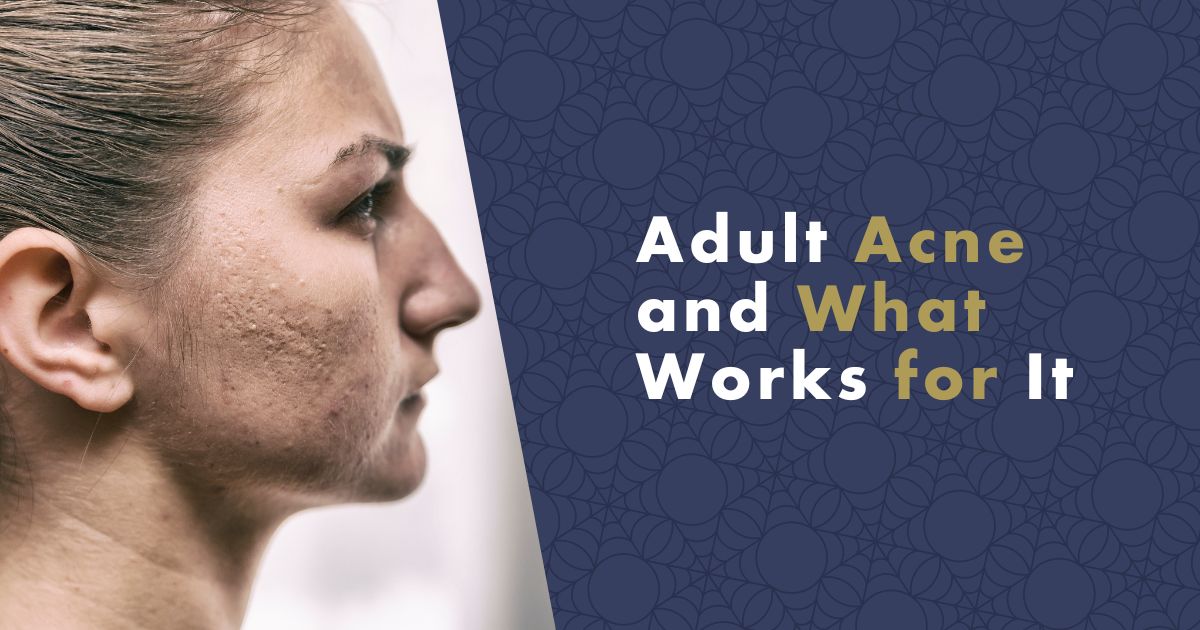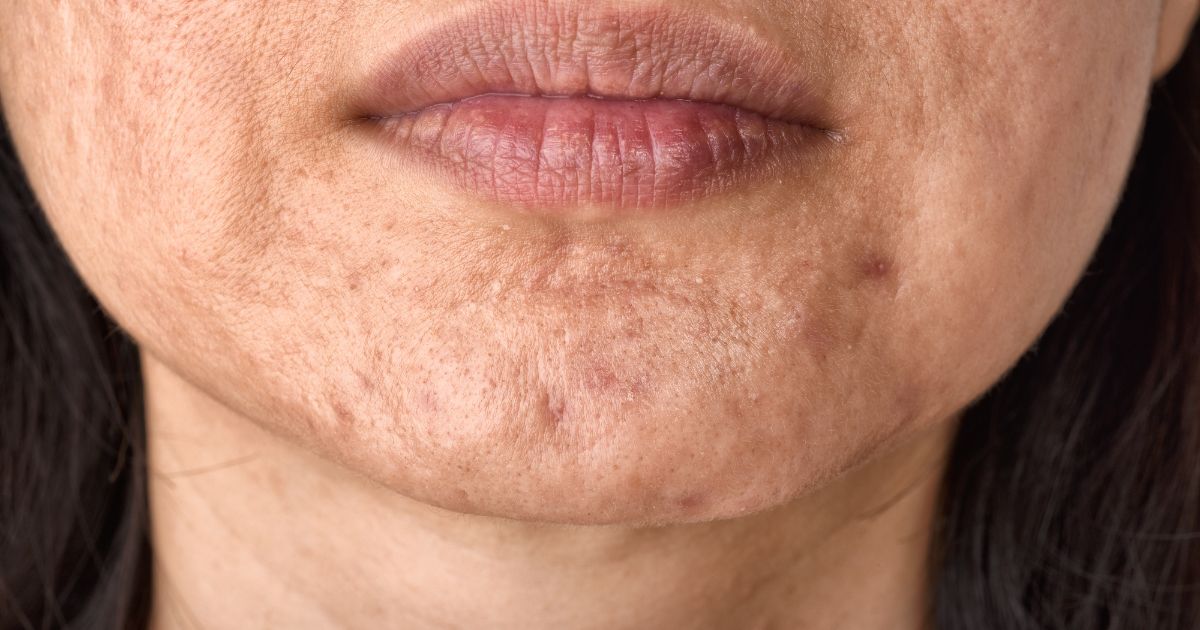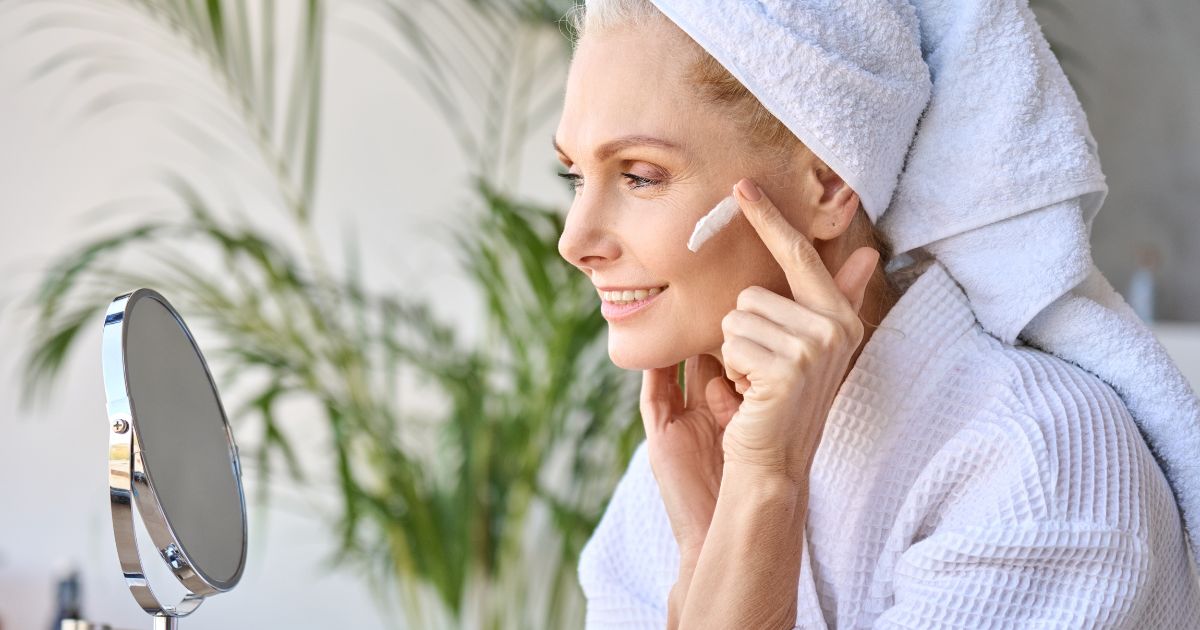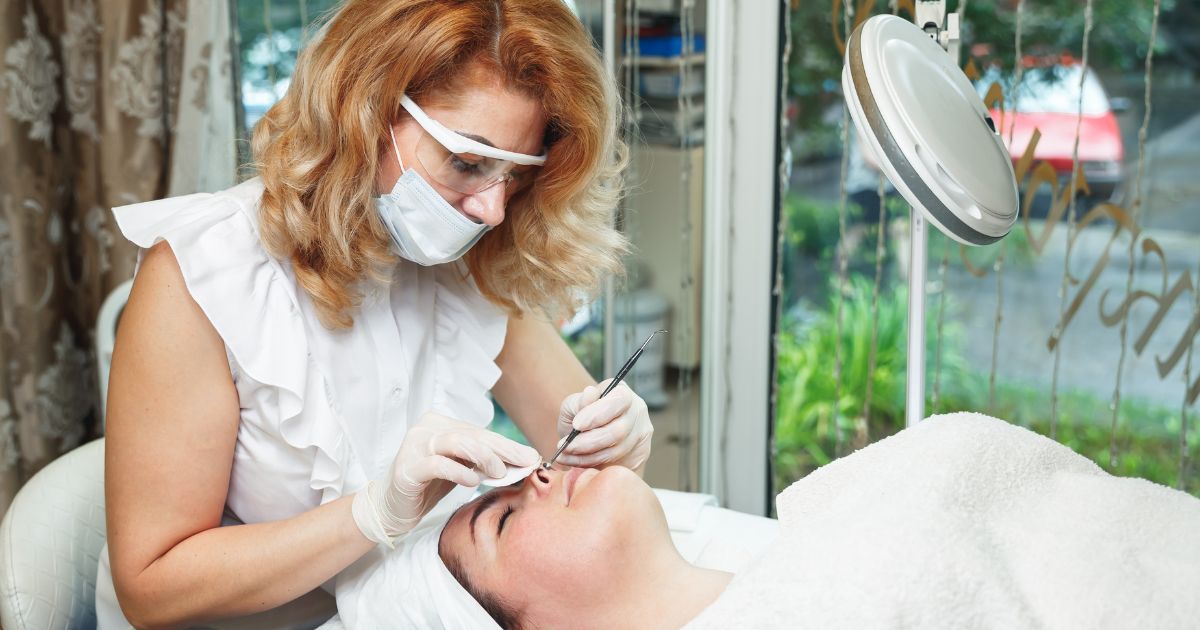Struggling with acne as an adult can be both frustrating and cause a lack of confidence. In this article, we explore various aspects of acne and acne skincare, providing insights into causes, treatments, and effective skincare routines tailored to acne-prone skin. Whether you're facing adult acne or navigating through teenage years, understanding the nuances of acne management can help you achieve clearer and healthier skin, boosting your confidence along the way.

What is Acne?
Acne is a common skin condition that can affect people of any age. Nowadays, about half of people aged 20 to 29 suffer from acne. Acne is characterized by increased sebaceous gland activity and also by the clogging or inflammation of these glands, resulting in red pimples, cysts, and blackheads on the skin and body. Besides the face, acne is often found on the shoulders, back, and neck (areas where there are more sebaceous glands).
Adult Acne vs. Teenage Acne
During adolescence, acne is a common issue for many teenagers. One of the main differences between adult acne and teenage acne is the age at which acne appears and the causes of its onset. Adolescent acne usually appears during puberty and then subsides, while adult acne persists even after puberty.
It also differs in appearance. Adolescent acne typically looks like red pimples and blackheads, known as comedones, while adult acne can also include painful cysts deep beneath the skin's surface, which are typical of subcutaneous acne.
TIP: Are you troubled by subcutaneous acne? See what helps with blind pimples.

TIP: What works for blackheads? Read on the blog.
How Acne Develops
Acne development can be caused by many factors along with the normal functions of the human body. Sebaceous glands produce sebum, which protects the skin from external influences and drying out. However, if sebum production is excessive, pores and sebaceous glands become clogged, and sebum accumulates inside. This leads to acne, which manifests as blackheads or pimples.
Inflamed Acne
Pimples and blackheads formed by clogging sebaceous glands can easily become inflamed. Naturally, bacteria are present all over our skin. They can easily penetrate clogged sebaceous glands and cause inflammation, which manifests as red painful pimples, cysts, and we see inflamed acne on the skin.
Types of Adult Acne
Acne can take many forms and arise from various causes. Let's look at the types of adult acne you may encounter.
- Hormonal Acne: Hormonal acne is associated with an imbalance that can result from hormonal changes in the body. It can occur, for example, during the menstrual cycle or during pregnancy, when hormone fluctuations are most significant.
- Acne from External Factors: Adult acne can also occur as a result of inappropriate cosmetic products, skin irritation from the sun, or mechanical irritation.
- Acne from Medications: Taking certain medications such as corticosteroids, antiepileptics, sedatives, some antibiotics, can cause adult acne. In women, acne can also be caused by oral contraception. This type of acne usually disappears when you stop taking the medication.
#produkty#https://www.nanospace.store/cosmetics:nanobeauty,nanospace-cosmetics/?pv274=2428&order=name
Causes of Adult Acne
We've outlined several causes of adult acne. Let's take a closer look at them.
Hormonal Imbalance
One of the most common causes of adult acne is hormonal imbalance. Some hormones in the body (e.g., testosterone) can cause excessive production of skin sebum, leading to clogged sebaceous glands and acne formation. This hormonal imbalance occurs, for example, during pregnancy, menopause, or when taking hormonal contraception.
Acne in Pregnancy
Acne in pregnancy occurs in response to hormonal changes that the body undergoes during this period. One of the main culprits is increased production of a hormone called progesterone, which can stimulate sebaceous glands in the skin, leading to increased production of skin sebum.

Tip: Ultimate Guide: How to Get Rid of Acne.
Pregnancy acne typically occurs in the second and third trimesters of pregnancy, when hormonal fluctuations are most pronounced.
Androgen Hormones and Acne
In adults, acne may also manifest due to overproduction of androgen hormones. Androgen hormones are male hormones such as testosterone, which influence male development. This hormone may appear in connection with polycystic ovary syndrome, adrenal or ovarian tumors. Besides acne, it may be accompanied by excessive skin oiliness or hair loss.
TIP: For gentle cleansing of acne-prone skin, we recommend Cleansing Gel 200 ml for sensitive skin.
Stress and Its Impact on Acne
Stress doesn't contribute to health, and when you're under pressure for a long time, stress is likely to show. Acne is one of these manifestations. When we're stressed, our bodies produce stress hormones that can increase skin sebum production. This increases the risk of adult acne.
The Influence of Diet on Acne
As you surely know, diet can affect many processes that occur in the body, and what we eat also reflects on the skin and complexion. Although there's no specific list of foods that can directly cause acne, some studies suggest, that foods high in sugar and refined carbohydrates may worsen skin conditions. Although there's no specific acne diet, you should avoid these foods:
- Refined sugar,
- white flour and gluten,
- dairy products,
- alcohol,
- low-quality chocolate,
- sweets,
- fatty foods.
Try to cleanse your intestines and detoxify your body. If your intestines aren't working properly, it can affect your skin as well.
Genetic Factors
Genetics can also play a role in acne susceptibility. Heredity can affect hormone production, susceptibility to inflammation, and thus increase the risk of adult acne.
Sun Exposure and Polluted Air
UV radiation can be particularly strong, especially in summer months, and it's important to protect the skin. UV radiation along with common impurities, such as dust or dead skin cells, can together with skin sebum clog sebaceous glands, which often leads to acne formation.
Therefore, it's important to regularly cleanse your face, use products suitable for acne-prone skin, and most importantly, protect yourself from UV radiation with sunscreen, which can not only help prevent acne but can also affect wrinkle formation and skin aging in the long term.
#produkty#https://www.nanospace.store/skincare:nafigate/?order=name
TIP: What helps with wrinkles and skin aging?
Inappropriate Cosmetic Products and Inadequate Skincare
Choose cosmetics for acne-prone skin carefully and watch out for the content of certain ingredients that can clog sebaceous glands and pores and worsen overall acne condition. Avoid cosmetic products containing lanolin or ethanol, which can be problematic. Glycerin soaps or heavier creams are also not suitable.
TIP: Try our acne cream, which effectively fights acne while being gentle on the skin.
How to Treat Acne
Treating acne is a long journey. It requires time and patience. The key is proper care for acne-prone skin and suitable cosmetics for acne, but also finding the cause that may be causing acne.

TIP: Dry nanofiber patches made from natural herbal extracts effectively combat acne.
Skincare for Acne-Prone Skin
Not sure how to care for acne-prone skin and what cosmetics to choose? Here are some tips on what to focus on.
- Proper Skin Care: Choose products suitable for acne-prone skin and without oils and fragrances that may worsen acne. Keep in mind that some products intended for sensitive skin may be too oily for acne-prone skin.
TIP: Best Acne Products: Navigating the World of Skincare
- Cleansing Acne-Prone Skin: Cleansing the skin twice a day is a basic step in caring for acne-prone skin. Use a gentle cleansing product that does not contain irritating substances, and avoid harsh sponges or abrasive cleansers that could irritate the skin. Antibacterial products are also suitable.
- Skin Hydration: Although it may seem counterproductive, hydration is important for acne-prone skin. Use a lightweight hydrating cosmetic without oil to keep the skin hydrated without being greasy.
- Regular Exfoliation: Gentle exfoliation can help remove dead skin cells and prevent pore blockage. Use a gentle exfoliating cosmetic with salicylic acid, which has great effects on acne-prone skin.
- Makeup and Cosmetics: Also be careful when choosing makeup. Choose one that will not clog pores and unnecessarily dry out the skin. Also, remember to clean the brushes and tools you use during makeup application.
#produkty#https://www.nanospace.store/skin-cleansing/?order=price
TIP: Learn more about proper skin cleansing in our article How to Properly Cleanse Your Skin.
What to Avoid
Thorough skincare doesn't end there. Even in everyday life, watch out for these few things:
- Don't Squeeze Pimples: Squeezing pimples can cause inflammation and leave scars. Try to resist the temptation and let acne heal naturally.
- Avoid Touching the Skin: Try not to touch your face too much during the day. Frequent touches can introduce dirt and bacteria to the face.
- Avoid Stress: Although it's not an easy task, try to find a way not to stress too much and not to be under pressure.
- Clean Face Towel: We also recommend having a separate towel just for the face, into which you will not wipe anything else.
TIP: Try a mask for acne with salicylic acid
Visiting a Dermatologist
Visiting a dermatologist can reveal the type of acne and its cause and also suggest subsequent treatment. If you have severely inflamed acne that is painful and has a red to purple color, do not hesitate to visit a dermatologist. Possible treatments also include laser therapy, chemical peeling, and in severe cases, antibiotics.

Prevention of Acne
The basis of preventing adult acne is primarily a healthy lifestyle and skincare. Healthy food without added refined sugars, stabilizers, or instant meals contributes to the overall health of the body and skin. Smoking cigarettes and alcohol can also affect the skin.
Frequently Asked Questions (FAQ)
How to get rid of adult acne?
Getting rid of adult acne requires regular and gentle skincare, suitable cleansing and moisturizing products, avoiding squeezing pimples, and consulting a dermatologist for treatment. A healthy lifestyle, such as a healthy diet and stress reduction, can also help.
How do I know if I have hormonal acne?
Hormonal acne often manifests in the jaw and neck area, usually in connection with the menstrual cycle in women or hormonal changes during pregnancy. It is ideal to use gentle cosmetic products that will not clog pores.
What are the main causes of adult acne?
Although the causes may vary, hormonal imbalance, stress, dietary habits, and genetic factors are among the main causes of adult acne.
What is an appropriate way to treat adult acne?
Treatment depends on the severity and causes of acne. It may include the use of selected medications, treatment by a dermatologist, and lifestyle changes.
Does skincare affect adult acne?
Yes, skincare is an important factor in the prevention and treatment of acne. A proper cleansing routine and the use of suitable products can help keep the skin healthy.
Sources
- Skroza, N., Tolino, E., Mambrin, A., Zuber, S., Balduzzi, V., Marchesiello, A., Bernardini, N., Proietti, I. and Potenza, C., 2018. Adult acne versus adolescent acne: a retrospective study of 1,167 patients. The Journal of clinical and aesthetic dermatology, 11(1), p.21.
- Khunger, N. and Kumar, C., 2012. A clinico-epidemiological study of adult acne: is it different from adolescent acne?. Indian journal of dermatology, venereology and leprology, 78, p.335.
- Chlebus, E. and Chlebus, M., 2017. Factors affecting the course and severity of adult acne. Observational cohort study. Journal of Dermatological Treatment, 28(8), pp.737-744.

